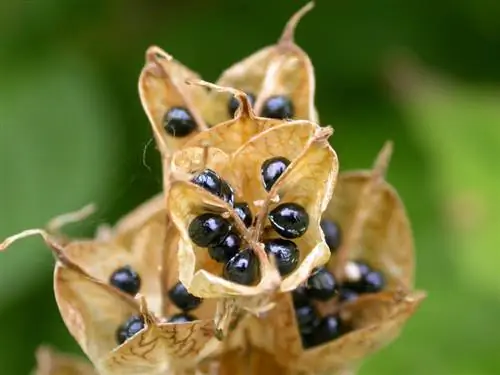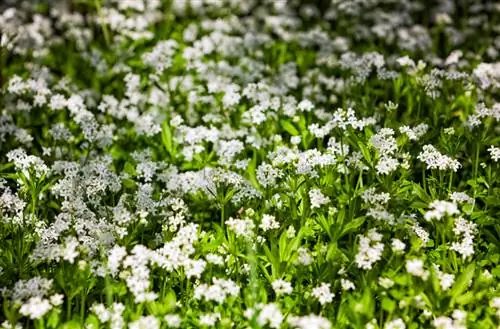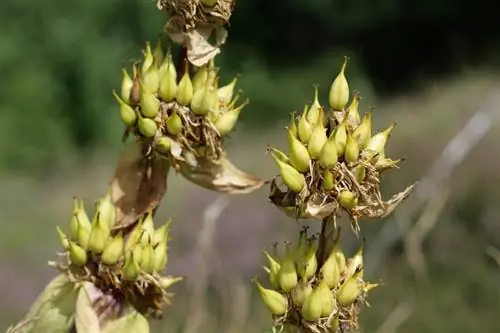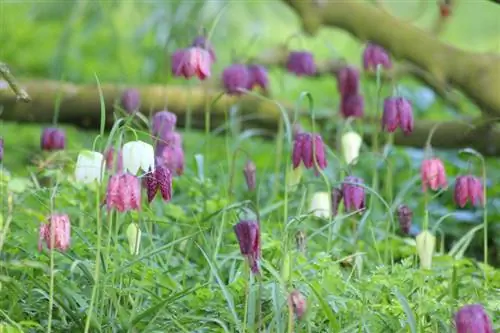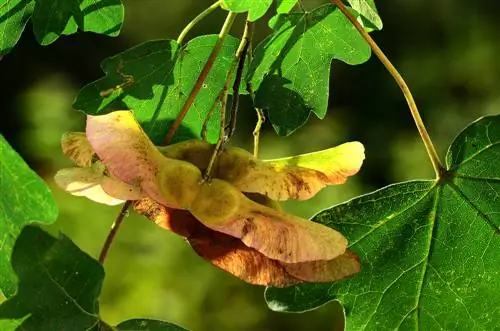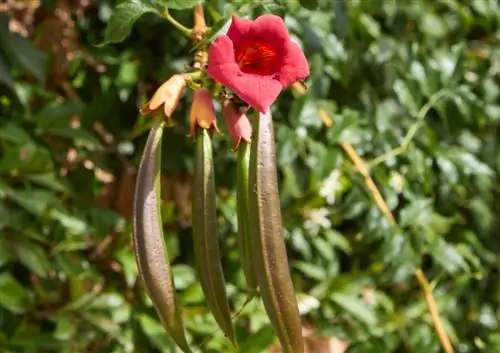- Author admin leonars@hobbygardeners.com.
- Public 2023-12-16 16:46.
- Last modified 2025-01-23 11:20.
Graceful, delicate and sky blue - these terms probably best describe the appearance of the harebell in its heyday. If you like this spring bloomer, you don't need to buy multiple plants. One plant is enough - it can be easily propagated.
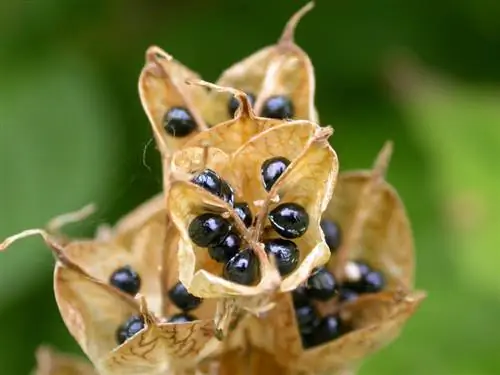
When are harebell seeds ready to harvest?
Harebell seeds ripen after flowering in May/June. Seed maturity can be recognized when the leaves turn yellow. The seeds are usually ripe and can be collected in July.
When are the seeds ripe?
The seeds ripen after the flowering period in May/June. Seed maturity can be recognized at the latest when the leaves turn yellow. The seeds are usually ripe in July and can be collected if necessary.
Seed characteristics
The harebell seeds are located in a three-lobed capsule fruit. This has three chambers in which, depending on the type, there are 3 to 30 seeds. The individual seeds are inconspicuous. They have a rounded to spherical shape, are wingless and black in color. Their surface appears smooth and slightly shiny. They are cold and dark germs.
Self-sowing: not uncommon
Harebells often feel so comfortable in their location that they reproduce on their own via their seeds. Over time, entire carpets of flowers emerge. But this requires a suitable location.
The place where the harebell stands should be partially shaded to shady. Locations under trees and bushes, for example, are well suited. The soil there should be nutrient-rich, loosened, slightly acidic and humic.
Tackling the sowing yourself
If you follow the correct steps step by step, you can also tackle sowing yourself. Either start in the fall between mid and late October or in the spring between February and March. This is important because the seeds are cold germinators and need cool temperatures to germinate.
How to proceed:
- Sow seeds in sowing soil (approx. 1 cm deep)
- place in the warm living room for the first 2 to 4 weeks and keep moist
- After 4 to 6 weeks, put out on the balcony, terrace or cold house (-4 to 4 °C)
- plant from May
- Planting distance: 8 to 10 cm
Tips & Tricks
Once you have collected the seeds, do not leave them unattended where small children and pets have easy access. The seeds, like the other parts of the harebell, are poisonous.

